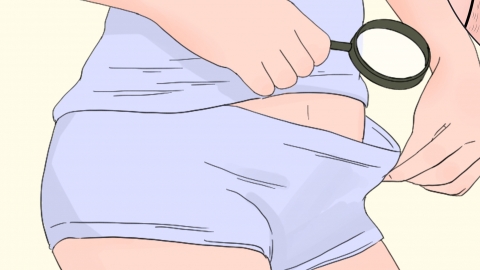What can be done about vaginal dryness after a hysterectomy?
Generally, vaginal dryness after hysterectomy may be caused by factors such as decreased estrogen levels, insufficient sexual arousal, atrophic vaginitis, chronic vulvitis, or vaginal mucosal injury. It is recommended to seek timely medical consultation to identify the underlying cause and improve symptoms under a doctor's guidance through general treatments, medications, surgical interventions, and other methods. The detailed analysis is as follows:

1. Decreased estrogen levels: Hysterectomy may affect ovarian blood supply, leading to reduced estrogen secretion, thinning of the vaginal mucosa, and decreased secretions, which cause dryness. Under medical guidance, topical application of medications such as conjugated estrogen cream, promestriene cream, or diethylstilbestrol ointment can help improve the condition of the vaginal mucosa.
2. Insufficient sexual arousal: Psychological stress or concerns about sexual activity after surgery may hinder sexual arousal, reducing secretion from vaginal glands and causing dryness. Enhancing communication with the partner, alleviating psychological burdens, increasing sexual excitement through caressing, and seeking psychological counseling when necessary may help alleviate symptoms.
3. Atrophic vaginitis: Reduced estrogen levels decrease vaginal resistance, making it prone to inflammation, which can lead to vaginal dryness, itching, and a burning sensation. Patients may follow medical advice to use medications such as estriol cream, chlorquinaldol-promestriene vaginal tablets, or metronidazole suppositories for treatment.
4. Chronic vulvitis: Chronic inflammation caused by long-term irritation or infection of the vulva may affect the vagina, resulting in reduced secretions and dryness, accompanied by thickened vulvar skin and itching. Patients may follow medical advice to use medications such as clindamycin phosphate gel, mupirocin ointment, or Baofukang suppositories to control the inflammation.
5. Vaginal mucosal injury: Injury to the vaginal mucosa during surgery may impair its secretory function, leading to dryness and possibly mild pain. Severe cases may require vaginal mucosal repair surgery to restore normal structure and function of the mucosa.
Daily care should include maintaining vulvar cleanliness by washing with warm water and avoiding irritating cleansers. Choose loose, breathable cotton underwear to reduce friction on the vulva and vagina. In terms of diet, consume more foods rich in B vitamins, such as whole grains and lean meats, which help maintain mucosal health.




